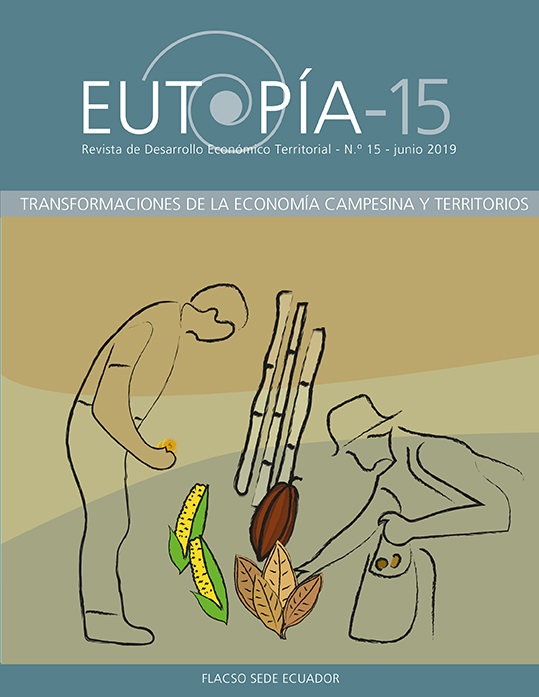The role of agriculture and non-agricultural labor in the socioeconomic reproduction of quilombola families in the Serra dos Tapes region, Rio Grande do Sul, Brazil
Abstract
This study aims to understand the social, economic and productive organization in the remnant of Quilombo community of Alto do Caixão, located in Serra dos Tapes region, in the municipality of Pelotas, Rio Grande do Sul, Brazil. In order to do so, it seeks to understand how their families, in interaction with the regional context, mobilize different resources in order to guarantee their socioeconomic reproduction on a local scale. In order to achieve the objectives proposed in this study, we adopted the analytical perspective of Agrarian Systems, which provided the necessary tools to delineate and analyze the social and production systems of quilombola families and their relation to the regional scenario, in which are inserted. Through the field study and analysis of the results obtained, it was possible to understand the importance of non-agricultural work for socioeconomic reproduction of families. Agriculture, in turn, presents a complementary character to the income, assuming significant importance in the construction of the identity, in the food security and autonomy of the families.
Downloads
Copyright (c) 2019 Gabriela Rodrigues Gois

This work is licensed under a Creative Commons Attribution-NoDerivatives 4.0 International License.

Eutopía, Revista de Desarrollo Económico Territorial, operates under Creative Commons Attribution-No Derivative Work 3.0 unported (CC BY-ND 3.0).
The authors who publish in Eutopía accept these terms:
You are free to share / copy and redistribute the material in any medium or format for any purpose, including commercial. Therefore, authors retain the copyright and cede to the journal the right of the first publication (CC by-ND 3.0), which allows third parties the redistribution, commercial or noncommercial, of what is published as long as the article circulates without changes.
The following conditions exist for the authors:
Recognition - you must recognize the authorship, provide a link to the license and indicate whether changes have been made. You can do this in any way reasonable, but not in a way that suggest that has the support of the licensor or receives it by the use he makes.
Without Derivative Work – If you remixed, transform or create a work from the original material, you cannot broadcast the modified material.
For more details, visit the page of Creative Commons (CC).


























